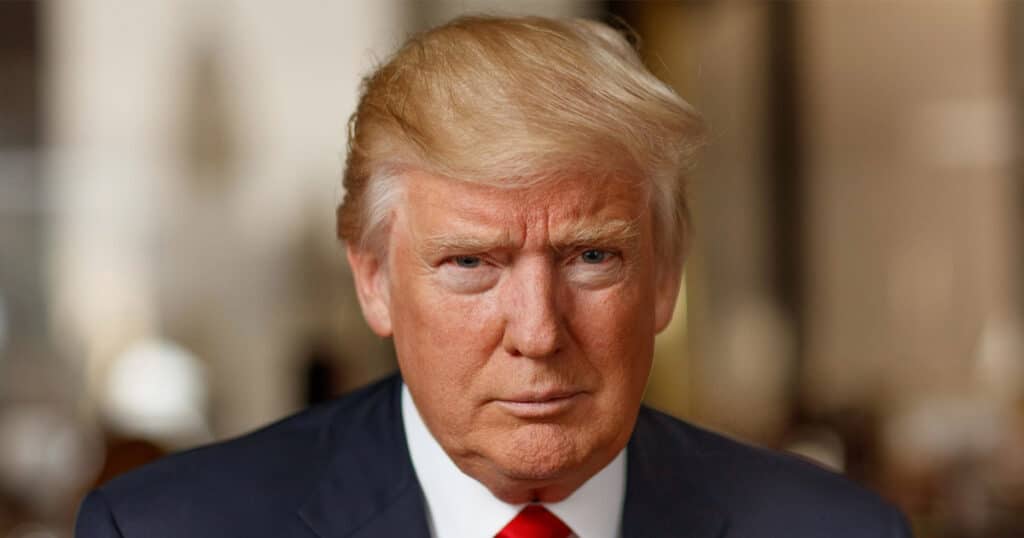
Yes, the President Can Deploy Troops To Enforce Immigration Law
President-elect Trump’s confirmation last month of his plan to deploy military assets for immigration enforcement sparked a constitutional debate. Legal scholars and commentators quickly declared such action forbidden by long-standing prohibitions on military involvement in domestic law enforcement. But this conventional wisdom misreads both the letter and spirit of American law. A careful examination of a pair of longstanding statutes reveals military support for immigration enforcement is permissible.
The issue hinges on two 19th century laws: the Posse Comitatus Act of 1878 and the Insurrection Act of 1807. When properly understood, both allow the President to use active-duty military forces to support the deportation of illegal immigrants.
Posse Comitatus: A Firewall Between the Military and Law Enforcement
Since our nation’s founding, Americans have been wary of standing armies and their role in civilian affairs. Concerns about military involvement in domestic law enforcement dates back to colonial experiences under British rule, particularly the quartering of British troops in civilian homes and their use to enforce British law. This experience was so troubling that it influenced several key elements of the Constitution and Bill of Rights.
The Third Amendment, ratified in 1791, explicitly prohibits American soldiers from occupying private homes inside the county during peacetime. The Posse Comitatus Act of 1878, informed by a distrust of a large military force employed against its citizenry, codified the separation of military and civilian law enforcement. This act established a firewall between military force and civilian law enforcement.
The term “posse comitatus,” Latin for “power of the country,” dates back to the medieval England tradition of local sheriffs organizing citizens to assist in maintaining public order. A form of this practice made its way to the American Old West: sheriffs called for volunteers – “a posse” of the county – to chase down bandits. This power allowed sheriffs to deputize civilians to temporarily suppress lawlessness and maintain order.
The Posse Comitatus Act of 1878 derives its name from this practice with a crucial distinction: it specifically prohibits the military from acting as this civilian force. The law’s architects recognized that using soldiers instead of citizens for domestic law enforcement would fundamentally alter the relationship between military power and civil society. They sought to ensure that federal troops were kept out of local law enforcement.
Yet this legislative barrier against using military force for domestic law enforcement is not absolute. Congress regularly makes exceptions, allowing military support to civilian law enforcement for actions such as protecting federal property, conducting domestic counterterror operations, engaging in counterdrug efforts. In cases related to immigration enforcement, courts have ruled the Posse Comitatus Act only prohibits direct military involvement in law enforcement actions such as detaining citizens. Support activities, from transportation to surveillance, remain legal. This distinction between direct enforcement and support operations provides the legal basis for President-elect Trump’s proposed use of military assets in his planned deportation program.
Military Assets Against Illegal Immigration Today: U.S. Troops at the Southwest Border
The military currently provides support for immigration enforcement. Today, roughly 4,000 service members assist Customs and Border Protection along the southwest border. They operate surveillance aircraft, transport Border Patrol personnel, and maintain vehicles. These activities fall within the established legal framework for military support of immigration operations.
The incoming administration has the potential to significantly expand this support role. Military aircraft could transport detainees, military installations could provide temporary housing facilities, and military personnel could assist with administrative and logistical tasks. None of these activities would violate Posse Comitatus because they do not involve direct law enforcement actions.
The Insurrection Act: A Broad Authority for Military Force
But what about using military forces to support law enforcement and enforce the law? This is where the Insurrection Act becomes crucial.
The Insurrection Act, a composite of laws enacted between 1792 and 1807, represents a significant exception to the traditional separation of military and civilian law enforcement in the United States. The act grants presidents extraordinary power to deploy federal troops on American soil—a power that is typically forbidden but also vitally important to the success of federalism.
The act’s broad language, largely unchanged since the Civil War, allows presidents to deploy troops whenever they believe domestic unrest, rebellion, or resistance to federal law makes normal enforcement impossible. This extensive authority is rooted in Congress’s constitutional power to call forth the militia to “execute the Laws of the Union, suppress Insurrections and repel Invasions,” as described in the Constitution. The act effectively creates a presidential override of the prohibitions against using military forces for domestic law enforcement. What was initially conceived as an emergency power for a young nation now stands as a powerful tool for President-elect Trump, who might see state resistance to federal immigration enforcement as justification for military deployment.
Illegal Immigrant Safe Havens: Local Government Resistance to Federal Law
Some jurisdictions have already declared their intention to resist federal immigration enforcement. Six states have already publicly announced plans to resist President-elect Trump’s plan to deport thousands of undocumented immigrants. Under the Insurrection Act, such resistance justifies the use of military force.
The deployment of military forces by a president inside the United States to enforce the law when local governments refuse to do so is not unprecedented. This happened several times during the Civil Rights era, most famously when President Eisenhower invoked the Insurrection Act to send the 101st Airborne to Little Rock in 1957 when state officials obstructed federal desegregation orders. Nearly seven decades later, the principle remains unchanged: local authorities cannot nullify federal law. If they attempt to do so, the President has authority to direct military power to enforce it. Invocation of the Insurrection Act in such an instance would permit American troops to detain undocumented immigrants inside the United States.
The Constitution provides remedies when state and local authorities obstruct federal law enforcement. The incoming administration has legal authority to use military assets to support immigration enforcement. Those who claim otherwise misunderstand both the law and its historical context.
Patrick O’Malley is an attorney in New York and Maryland, a former Assistant District Attorney in Queens County, NY, and a retired U.S. Army Reserve Judge Adjutant General officer who taught National Security Law at the University of Baltimore School of Law.
Joe Buccino is a retired U.S. Army Colonel and the CEO of Vantage + Vox.
This article was originally published by RealClearDefense and made available via RealClearWire.



